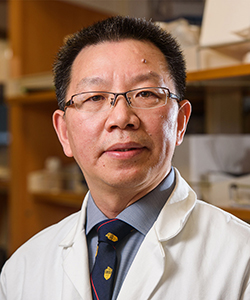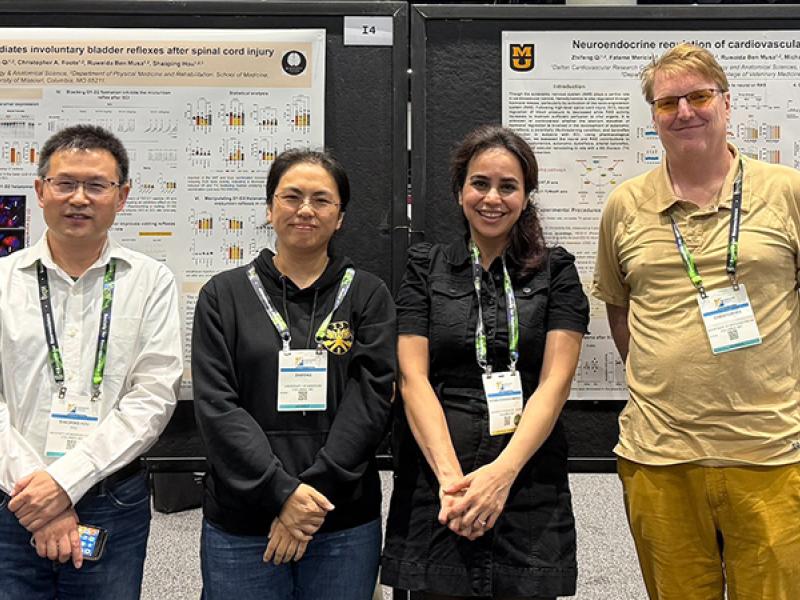
Researchers from the University of Missouri School of Medicine have received $1.2 million from the National Institutes of Health to study how a diet high in fat and sugar may stimulate a type of gut bacteria to cause liver disease.
The western diet known for including foods that are high in fat, salt and sugar high is a major risk factor contributing to the development of nonalcoholic fatty liver disease (NAFLD), which is rapidly becoming the leading cause of liver disease affecting 25% of the population worldwide.

“There is mounting evidence that a diet high in sugar and fat interacts with gut bacteria to cause liver dysfunction,” said co-principal investigator, Guangfu Li, PhD, DVM, former associate professor in the Department of Surgery and Department of Molecular Microbiology and Immunology. “But we don’t know a lot about the specific microbes causing this disease, or the underlying mechanisms behind it.”
In an effort to unlock this mystery, Li’s team has developed a model by feeding mice a diet that mimics the human western diet. They believe that this diet will stimulate a type of gut bacteria called Blautia producta, which produces a byproduct which causes liver injury.
“We believe this model will advance our understanding of the diet-gut-liver relationship and provide the clues needed to develop dietary and microbial therapies to suppress this global health threat,” said co-principal investigator, Kevin F. Staveley-O’Carroll, MD, PhD, former professor in the Department of Surgery.
Li, Staveley-O'Carroll and fellow co-principal investigator R. Scott Rector, PhD, the Director of NextGen Precision Health Building and Interim Senior Associate Dean for Research — are part of NextGen Precision Health, an initiative to expand collaboration in personalized health care and the translation of interdisciplinary research for the benefit of society.
The Roy Blunt NextGen Precision Health building at MU anchors this statewide initiative, which aims to unite government and industry leaders with innovators from across the system’s four research universities in pursuit of life-changing precision health advancements. The University of Missouri System’s bold NextGen initiative highlights the promise of personalized health care and the impact of large-scale interdisciplinary collaboration.
Their grant runs through June 2025.

Highlighting the promise of personalized health care and the impact of large-scale interdisciplinary collaboration, the NextGen Precision Health initiative is bringing together innovators from across the University of Missouri and the UM System’s three other research universities in pursuit of life-changing precision health advancements. It’s a collaborative effort to leverage the research strengths of Mizzou toward a better future for the health of Missourians and beyond. The Roy Blunt NextGen Precision Health building at MU anchors the overall initiative and expands collaboration between researchers, clinicians and industry partners in the state-of-the-art research facility.





